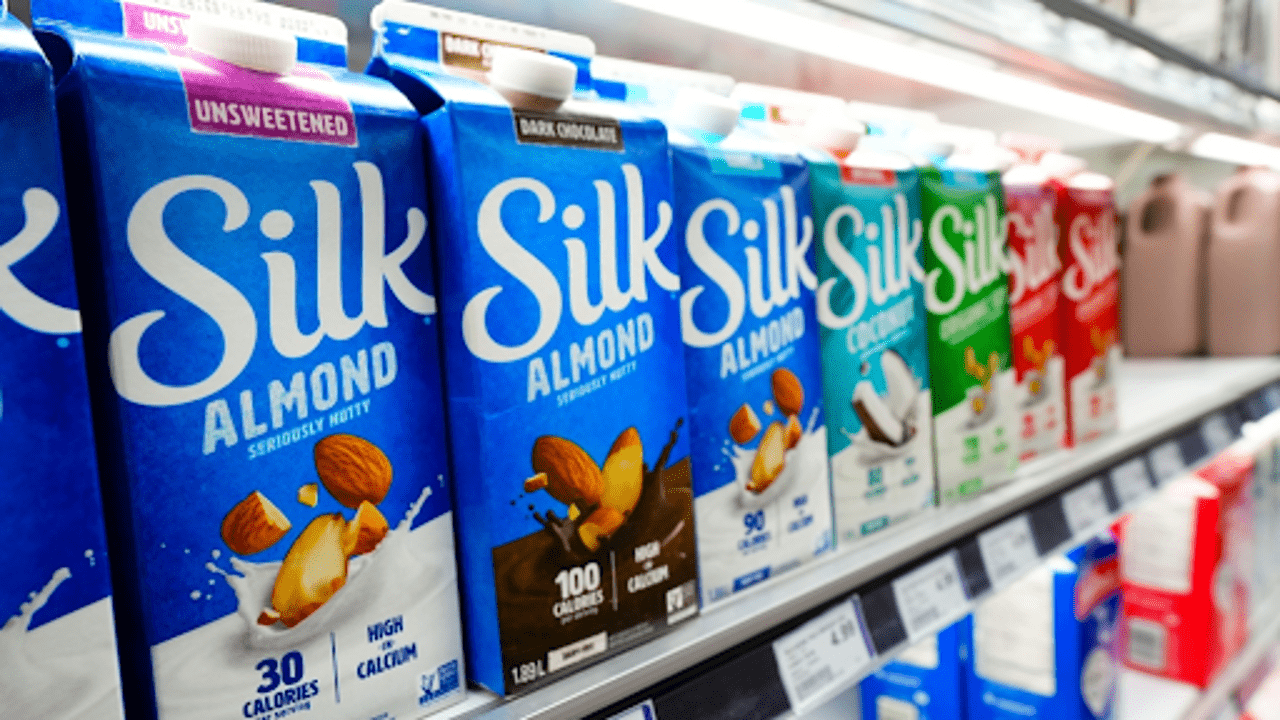
Almond and other non-dairy milk alternatives are seen on display at a grocery store in Aylmer, Quebec, on Thursday, May 26, 2022. (THE CANADIAN PRESS)
A Listeria outbreak linked to various plant-based milk products seems to be slowing, but health officials warn it's too early to declare it over, according to the Public Health Agency of Canada (PHAC). April Hexemer, the federal agency's director of outbreak management, emphasized in an interview that the outbreak can't be considered over until early October. This cautious approach is due to Listeria's long incubation period, which can last up to 70 days, and the time it takes for new cases to be reported. Hexemer noted that this timeline ensures that any lingering illnesses are accounted for before declaring the outbreak officially over.
As of August 12, the outbreak has resulted in 20 confirmed infections across Ontario, Quebec, Nova Scotia, and Alberta, with three deaths reported. These illnesses led to a nationwide recall of certain Silk and Great Value plant-based milk products on July 8. The outbreak's timeline reveals that the first three cases were reported in August, September, and December of 2023, making it challenging to link them to a common source initially.
However, by June, the situation had escalated with nine new cases. Investigators took this opportunity to compare bacteria samples from these cases to those from the earlier, seemingly unrelated infections. They discovered that all the samples shared the same genetic strain of Listeria, indicating a common source. To identify the origin of the contamination, investigators interviewed those affected, asking them to recall their recent food and drink consumption. The daily consumption of the implicated plant-based milk helped narrow down the source.
In a stroke of luck, some of the individuals who fell ill in June still had the suspect plant-based milk in their refrigerators. This discovery was crucial in pinpointing the source of the outbreak. The beverages in question all contained the same product code—7825—and were traced back to a packaging facility in Pickering, Ontario. On August 7, the Canadian Food Inspection Agency (CFIA) announced that the contamination originated from a specific production line at this third-party facility, which was used by plant milk manufacturer Danone Canada.
Hexemer explained that Listeria's behavior in production environments contributed to the gaps between confirmed cases. The bacteria can lay dormant in such settings, potentially developing a protective shell. When conditions change, the bacteria can suddenly become active, leading to outbreaks. This sporadic nature of Listeria makes it particularly challenging to trace and manage outbreaks.
Despite the difficulties posed by Listeria, Hexemer considers the investigation into this outbreak a success. The discovery of the genetic link between cases, the identification of the specific production line, and the nationwide recall of contaminated products all represent significant achievements in public health.















